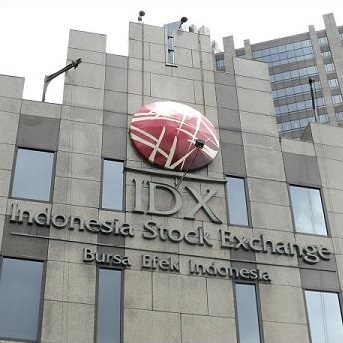Southeast Asian stocks are bouncing back from a bear market, outpacing global indexes as foreign investors pour in amid recovering economies.
The MSCI South East Asia Index is up 20 percent from a closing low on Jan. 21. Leading the way are Indonesian shares, which entered a bull market, considered by many to be a 20 percent rebound based on closing prices.
Southeast Asian markets are rebounding as accelerating economic growth and calmer currencies attract investors seeking refuge from the volatility rocking markets in China and Japan this year. That’s a reversal of fortunes from 2021 when the region’s equity gauge plunged as prospects for higher U.S. rates spurred capital outflows.
“The risk-on trade is back on. This is a short term rebound after a tumultuous fourth quarter,” Geoffrey Ng, director at Fortress Capital Asset Management in Singapore, which oversees about $1.2 billion, said by phone. “This is fuelled partly by greater certainties of the path of U.S. interest rates.”
“This rally looks sustainable,” said Soo Hai Lim, a Hong Kong-based money manager at Baring Asset Management, which oversees about $41 billion. “In the run up to the elections, Indonesia consumer stocks will benefit from increased spending. We remain positive on Indonesia . We’re not really too concerned about the outcome of the elections as long as the new government pushes through with infrastructure projects.”
Other benchmark indexes in Asia are close behind Indonesia , as the MSCI South East Asia Index recovers from a 31 percent drop from an April peak. Taiwan and the Philippines benchmark indexes are up 19 percent from last year’s lows, while Indonesian have jumped 13 percent from a January low. The broader MSCI Emerging Markets Index is up 19.7 percent from a January low.
Fund Flows
Overseas investors have bought $551.5 million of Indonesia’ shares this month, set to end 11 months of withdrawals that saw them pull a record $1.39 billion. About $160 million of global funds have flowed into Indonesian equities during the same period, while $329.5 million poured into Thai stocks, data compiled by Bloomberg show.
Currencies have helped lift assets, a turnaround from last year, as they tumbled to follow a repeat of 2021’s taper tantrum when they paced losses in global equity markets after the Fed initially signaled it would reduce monetary stimulus. Malaysia’s ringgit has appreciated 5.9 percent this year, while Indonesia’s rupiah has gained 5.1 percent and the Thai baht has risen 3.5 percent.
The region has been rallying while other markets have struggled to dig themselves out of losses. The MSCI South East Asia Index is down 9.4 percent for the year, while the MSCI All Country World Index has dropped 0.8 percent. The Standard & Poor’s 500 Index is down 0.2 percent, even after a 12 percent rally from a February low.
Yield Chase
“After the selloff in emerging markets, sentiment is relatively calmer,” Bernard Aw, a strategist at IG Asia Pte, said by e-mail. “The chase for yields has probably led some international investors to relook at the assets in Southeast Asia. These countries are less affected by global vicissitudes because of their larger domestic markets, and a lesser reliance on external trade to drive growth.”
Economies in Indonesia and Thailand recorded faster-than-estimated growth in the fourth quarter as stimulus measures by the two governments helped shield the countries from China’s slowdown. Thai Prime Minister Prayuth Chan-Ocha accelerated budget spending to help everyone from farmers to small businesses amid falling exports. Indonesia, Southeast Asia’s largest economy, cut its main interest rate for the third straight month in to boost growth.
Goldman Sachs Group Inc. has forecast Asean, or the Association of Southeast Asian Nations, will record economic growth of 4.5 percent this year, compared with expansions of 2.1 percent in the U.S., 1.4 percent in the Euro area, and 0.7 percent in Japan.
“We like Indonesia’s stocks,” Raymond Kong, Singapore-based fund manager at One Asia Investment Partners, which oversees $2.5 billion of assets, said. “They’re not cheap because investors are paying a premium for growth.


